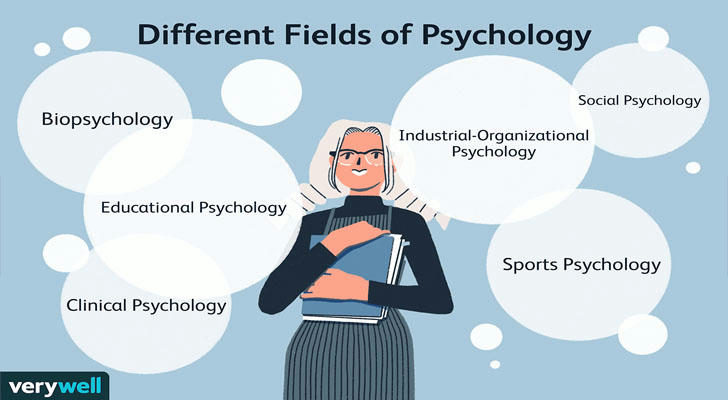Unlocking the Mind: Why Taking a Psychology Course Could Be Life-Changing
Have you ever wondered why people act the way they do? Or what makes someone tick, especially when they do something that seems completely out of character? Understanding human behavior is a fascinating puzzle, and the key to unlocking it lies in psychology. If you’re curious about the human mind, psychology courses are an excellent way to explore how we think, feel, and behave. Whether you're interested in your own mental processes or want to understand others better, psychology offers a wealth of insights into why we do what we do.
But psychology is more than just a way to read people—it's about better understanding yourself and learning skills that can improve relationships, boost emotional intelligence, and help navigate the complexities of human behavior. So, why should you consider taking a psychology course? Let's dive in!

1. What is Psychology, Anyway?
At its core, psychology is the scientific study of the mind and behavior. The field explores how we process information, form memories, experience emotions, and make decisions. But psychology isn’t just about understanding abstract theories; it has real-world applications that can improve your daily life.
In a psychology course, you’ll explore various areas of study, such as:
- Cognitive psychology: This looks at how we think, perceive, remember, and solve problems.
- Social psychology: How do our social environments shape our thoughts and behaviors? Why do we follow the crowd?
- Developmental psychology: How do we change over time, from childhood to adulthood?
- Abnormal psychology: What happens when people experience psychological disorders, and how can they be treated?
With such a diverse range of topics, psychology offers something for everyone. Whether you’re fascinated by mental health, curious about how relationships work, or intrigued by the mysteries of human cognition, psychology provides answers.
2. The Power of Self-Understanding
One of the most rewarding aspects of studying psychology is the opportunity for self-reflection. Have you ever been confused by your own actions or emotions? Why do you feel anxious in certain situations or act impulsively in others?
Psychology can shed light on these patterns by helping you understand the mental processes that influence your behavior. For example, you might learn about cognitive biases—the mental shortcuts our brains take that sometimes lead us to make irrational decisions. You could also discover how attachment styles—the way we bond with others—affect our relationships.
By understanding these patterns, you can gain more control over your emotions and reactions. A psychology course can teach you how to reframe negative thoughts, manage stress, and even improve your emotional resilience.

3. Case Study: Sarah’s Journey to Understanding Her Anxiety
Take the case of Sarah, a 27-year-old teacher who had always struggled with anxiety. Sarah often felt overwhelmed by her work, social events, and even day-to-day tasks. Despite her best efforts to push through, she couldn't shake the feeling that something was holding her back.
After taking a psychology course on human behavior, Sarah learned about the role that cognitive distortions (unrealistic ways of thinking) played in her anxiety. For example, she discovered she was often engaging in catastrophizing—imagining the worst possible outcome for every situation.
Through the course, Sarah also learned techniques from cognitive-behavioral therapy (CBT), a popular approach to addressing negative thinking patterns. She started using these strategies to challenge her anxious thoughts and replace them with more balanced ones. Over time, Sarah found herself feeling more in control of her emotions and able to handle stress better. The tools she gained through her psychology course not only helped her manage her anxiety but also allowed her to improve her professional life by being more focused and less reactive.
Sarah’s case is a perfect example of how understanding psychological concepts can lead to personal growth and a better quality of life. By learning about the science behind her feelings, Sarah was able to implement changes that made a real difference in her well-being.
4. Understanding Others: Building Better Relationships
Psychology is also incredibly useful for improving relationships—whether they’re with friends, family, or colleagues. By studying social psychology, you can learn about the factors that influence human interactions, such as group dynamics, peer pressure, and the psychology of communication.
For example, did you know that active listening can make a huge difference in your relationships? Psychology teaches you how to truly hear what someone is saying, without judgment or distraction, which leads to better understanding and stronger connections. In a psychology course, you’ll also learn about the role of empathy in communication and how to put yourself in someone else’s shoes.
Understanding personality types and the psychological triggers that influence behavior can also help you navigate conflicts and improve your social interactions. Whether you’re dealing with a stubborn colleague or a loved one who just doesn’t “get” you, psychology offers strategies for effective communication and conflict resolution.

5. Real-World Applications: More Than Just Therapy
While psychology is often associated with therapy and mental health, it has a wide range of applications in many fields. From marketing to education, business, and even sports, psychology plays a key role in improving performance, understanding consumer behavior, and creating positive environments.
For example, businesses use psychological principles to improve employee motivation, boost productivity, and enhance customer satisfaction. In sports, coaches use psychology to help athletes manage stress and optimize performance under pressure. Psychologists even work with musicians and artists to help them manage performance anxiety and tap into their creative potential.
So, whether you’re considering a career in therapy, research, or a business field, a psychology course provides a valuable skill set that can help you in numerous professional and personal settings.
6. Getting Started: How to Dive Into Psychology
If you’re intrigued by the world of psychology, getting started is easy. You can take a course through local colleges, online platforms, or even through self-paced learning. The beauty of psychology is that it’s accessible to anyone, regardless of your background or professional experience.
Start with introductory courses on topics like human behavior, cognitive psychology, or social psychology. Many programs also offer specializations in areas like clinical psychology, developmental psychology, or forensic psychology, allowing you to focus on a particular area that interests you most.
Conclusion: Unlock the Secrets of the Mind
Studying psychology offers more than just an academic pursuit—it’s a journey into understanding human nature and applying that knowledge to improve your life and the lives of others. From building better relationships to managing your mental health, psychology provides powerful tools for personal growth.
So, if you’re curious about the inner workings of the mind, want to improve your emotional well-being, or just love exploring what makes people tick, taking a psychology course could be the key to unlocking a new world of insights. After all, we spend our lives interacting with others and experiencing the ups and downs of our own thoughts and feelings—why not understand it all a little better? 🧠✨
